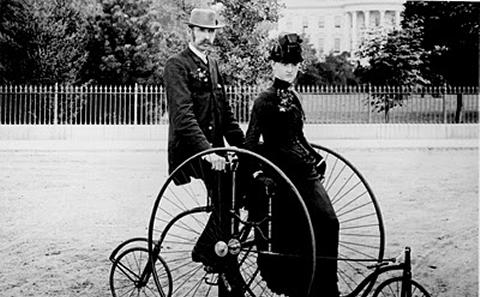'Victorian Life' Study Day Event

- Time:
- 10:00 - 16:00
- Date:
- 28 June 2014
- Venue:
- Avenue Campus Highfield Road Southampton SO17 1BF
For more information regarding this event, please email Lifelong Learning Team at lifelonglearning@southampton.ac.uk .
Event details
We will be holding a one-day cultural event on Saturday 28 June consisting of a series of short talks led by experts from within the Southampton Centre for Nineteenth-Century Research. This thought provoking and inspiring conference will provide you with the opportunity to learn and engage in discussion about the Victorians from academics of international distinction.
Who were the Victorians? Why are we fascinated by them? How do the history of the Victorian period, its cultural, technological and scientific achievements, its anxieties and its appetite for progress still help us to understand aspects of our own lives? Are we perhaps closer to the Victorians than we might imagine?
Programme
Dr Barry Sloan: Scenes of Victorian Country Life: Pastoral Imaginings or 'Isolation and Stupor?
At the start of the Victorian age the majority of the British population lived in rural communities, but by the mid-century the balance was increasingly shifting with the rapid expansion of towns and cities. Drawing on contemporary literature, journals and social commentary, this talk will examine some of the realities of country life which encouraged migration to the cities, and the coexistence of expressions of idealised representations and nostalgic longing for old-fashioned rural life in a time of radical social and cultural change.
Dr Mary Hammond: Murder on the Rails: Reading and the Victorian Train Traveller
The arrival and rapid spread of the railways in Britain between the 1840s and the 1860s had a profound effect not only on Victorian life, but also on its literature. This talk explores the close and often surprising relationship between train travel, its many real and imagined dangers, and emerging new forms of reading material from the short story to the tabloid newspaper.
Dr Jane McDermid: A Very Moral Panic? Josephine Butler, W.T. Stead and the Politics of Prostitution in the late nineteenth century
This session will consider the furore in Britain over the Contagious Diseases Acts of the 1860s and the response of the social purity movement to this apparent regulation of prostitution, which was seen as an urban problem. Josephine Butler, a leading campaigner against the Contagious Diseases Acts, and W.T. Stead, the ‘muckraking' journalist who claimed to expose the extent of prostitution in the Pall Mall Gazette in July 1885, assumed that the legislation was built on continental, especially French, regulatory systems; but earlier examples existed both in Britain and its colonies. The social purists' assumption that prostitution was increasing will be set within the context of unsettling developments in the late Victorian era which seemed to challenge established beliefs on sexual morality.
Professor Dan Brown: Women's Place in Science as Revealed by the Fossil Record of Victorian Poetry
Poetry was a private and professional form for such scientists as the physicist James Clerk Maxwell and the mathematician James Joseph Sylvester, who wrote primarily for themselves and their peers, while for many women who tried to make a living from their writing, such as May Kendall, who wrote for Punch, it was a more public, often satirical, form. This talk focuses upon neglected poetry about science by both scientists and women, to disclose and explore a range of contemporary emotional and intellectual responses to women's exclusion from Victorian professional science.
Dr Eve Colpus: Victorian Afterlives: Reputation and Generation in the first Dictionary of National Biography
What was a Victorian? This talk explores this question by considering the Dictionary of National Biography and its supplementary volumes of the 1920s - 1940s. Amongst many others, it will touch on the lives of Joseph Chamberlain, Henry James, Emily Davis, Mary Macarthur, and the work practices of the dictionary editors and staff.
Charges
£31 full rate
£21 loyalty rate (Harbour Lights Members, Friends of Parkes, English Teachers Network, university staff and alumni)
£11 discount rate (students/sixth form & college students and those in receipt of income-based Job Seeker's Allowance, Income Support, Working Tax Credit, Council Tax or Housing Benefit)
All prices include lunch and refreshments
Payment
BOOKING IS NOW CLOSED
Please note that booking is required for attendance of this event.




